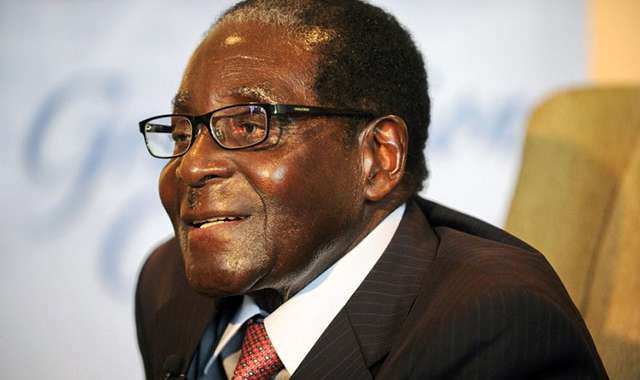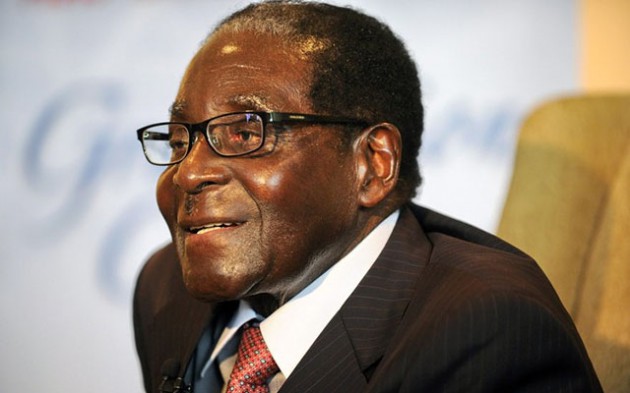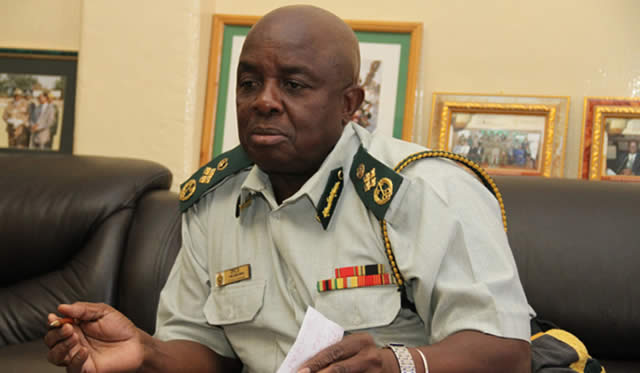Reflections on Harare Int Airport renaming

Dexter Nduna, MP Special Correspondent
A resolute and committed pan-Africanist, a visionary par excellence, an astute and perspicacious leader, His Excellency, the President’s commitment to the cause of the people of Zimbabwe could not have been more evident as in his unwavering struggle for the total economic empowerment of the black majority -a brave and forthright stance that is still to be seen anywhere in the world.
Through him, Zimbabweans have reclaimed their heritage – the land that was expropriated by the colonial regime – and re-established the consanguineous relationship that existed between Zimbabweans and their land, symbolised by the burial of the umbilical cord in the ground upon the birth of a child. Through him, the phrase “Son of the Soil” has regained its spiritual dimension and the success registered by indigenous people in tobacco farming, for instance, where the sector produced over 190 million kg of tobacco in 2015 alone earning the country US$584 million and $400 million in 2016, are there for all to see.
In terms of his commitment to the total economic emancipation of his people, President Mugabe remains a cat among the pigeons – the only leader brave enough and determined enough to stand for the rights of his people – despite unrelenting international pressure and vilification culminating in the imposition of illegal sanctions against the country. Not only has he spearheaded the reclamation of land by the black majority, but he has also commandeered the Indigenisation and Economic Empowerment Act, aimed at ensuring that Zimbabweans benefit in no small measure from their indigenous resources.
Through him, Zimbabweans have claimed a stake in mining, in agriculture and even in telecommunications and have begun to derive value from their resources. As the great civil rights leader Malcolm X rightly observed: “A race of people is like an individual man. Unless it uses its own talents, expresses its own culture and affirms its own selfhood, it can never really fulfil itself.”
President Mugabe has, to all intents and purposes, created a conducive environment for Zimbabweans to fulfil their potential by removing all systemic and institutional barriers in the pursuit of self- actualisation.
His achievements are innumerable and inimitable, chief among them:
Education
• President Mugabe revolutionised the education sector of Zimbabwe.
• Zimbabwe still prides itself on its exceptional literacy, for it shines with the highest literacy rate in Africa.
• Introduced the “Education for All” policy which saw masses receiving education at Government’s expense.
• Also introduced a deliberate skills- based initiative to complement the quantitative changes to education provision. Policies such as the “Education with Production” that came with the introduction of more Vocational Training Colleges increased the country’s skills base. Consequently, Zimbabwe is now not only ranked as the most literate country but has graduates that have acquitted themselves well across the globe.
• Great strides have been made in tertiary education where the number of State universities has increased from one in 1980 to 11 State universities to date.
Health
Under the stewardship of President Mugabe:
• Central hospitals increased from two to six
• District hospitals increased from 10 to 52 to ensure health for all
• Zimbabwe was one of the first developing countries to achieve the Millennium Development Goals of treating and preventing new HIV infections and reducing mother to child infections from 22 percent to 18 percent
AU & Sadc Chairperson
• Steered the peaceful resolution of political crises in Mozambique and Lesotho;
• Adroitly handled the resolution of the xenophobic attacks in South Africa which could have resulted in an implosion in the region;
• Was at the forefront of peace and security efforts on the continent after overseeing the signing of the peace agreement between Mali’s government and Tuareg rebels as well as working towards easing tensions in Burkina Faso and the DRC
• Gave renewed impetus to the AU’s Agenda 2063, Africa’s 50-year development blueprint, when he oversaw a summit at which the first 10-year implementation plan was adopted. Agenda 2063 focuses, among other things, on gender equality and the equal participation of women in all socio-political and economic spheres; creating a prosperous Africa, based on inclusive growth and sustainable development; an integrated continent, politically united, based on the ideals of pan-Africanism and the vision of Africa’s Renaissance; an Africa of good governance, democracy, respect for human rights, justice and the rule of law; a peaceful and secure Africa with a strong cultural identity, common heritage, values and ethics; an Africa whose development is people-driven, relying on the potential offered by people, especially its women and youth and caring for children and a strong, united, resilient and influential global player and partner.
• Spearheaded the adoption of the Sadc Industrialisation Strategy on April 29, 2015 which seeks to enhance the continent’s self-sufficiency and economic independence through production and optimisation of the use of Africa’s resources for the benefit of its people.
There is, therefore, sufficient justification in renaming the airport to Robert Gabriel Mugabe International Airport. The other benchmarks are J.F. Kennedy International Airport in the USA and Jomo Kenyatta International Airport in Kenya and the Kamuzu Banda International Airport in Malawi. Ours is befitting and comes at a very opportune time in our country’s history of transport and infrastructure development as enshrined in the Zim-Asset blueprint.
- Hon Dexter Nduna, Chegutu West MP, is chairperson of the Parliamentary Portfolio Committee on Transport and Infrastructure Development.











Comments